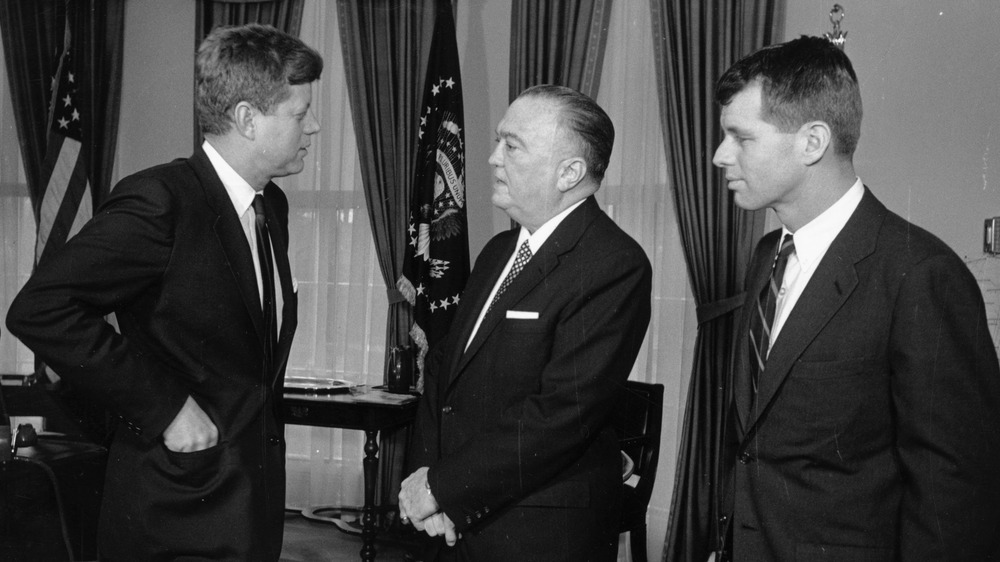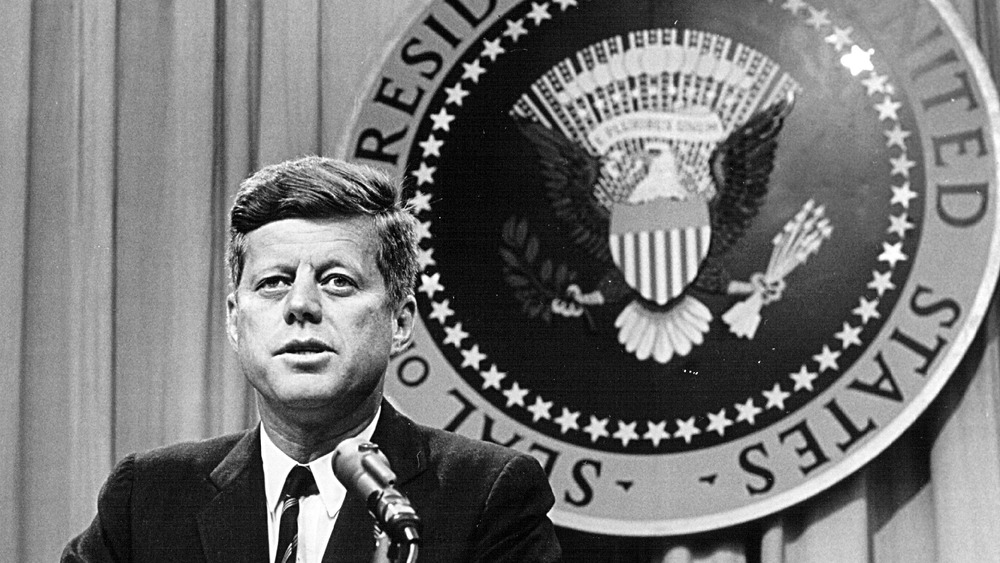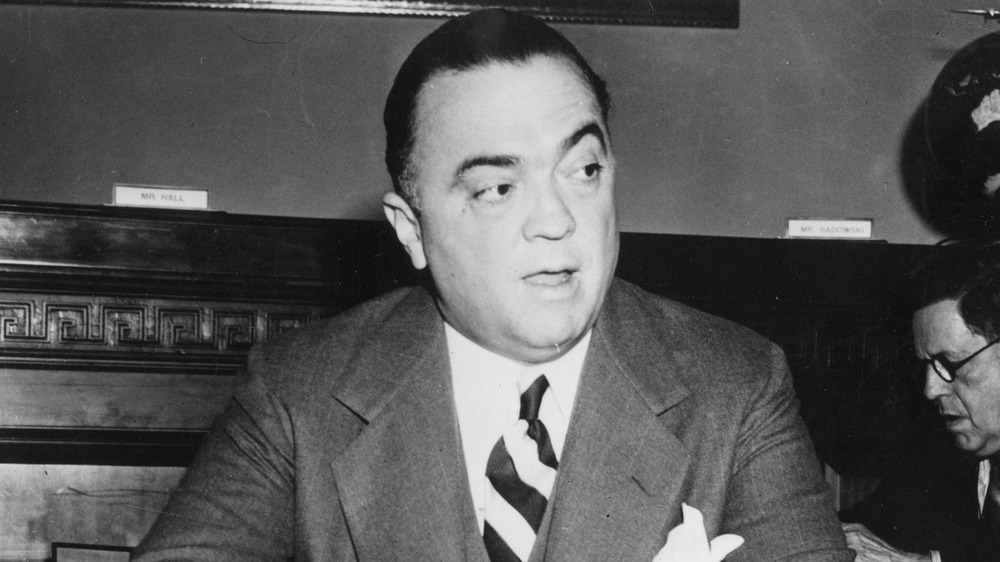The Reason The Kennedys Couldn't Stand J. Edgar Hoover
The Kennedys were a powerful political family. From John F. Kennedy as the President of the United States, to his brother Robert as attorney general, to brother Ted as U.S. Senator from Massachusetts, they knew they held a lot of influence. Like many high-powered people, the Kennedys disliked so many others. So when the head of the FBI, J. Edgar Hoover, decided to butt heads with the Kennedys, it did not go well.
Hoover already had a reputation for being very close to presidents. He liked being important and often bypassed his boss, the attorney general, to speak with presidents. But FBI directors aren't supposed to have a close relationship with the President of the United States. One of the FBI's chief functions is investigation of violations of federal law, and so the Bureau was kept separate from the Executive Office, in part to avoid the appearance of conflict of interest. Hoover did not care much for that rule and frequently flouted it with presidents he liked, including Franklin Delano Roosevelt and Dwight D. Eisenhower, wrote The Conversation.
Hoover did not like the Kennedy brothers, even though he got along well with their father, Joe, whom he saw as a self-made man. While JFK tolerated the FBI chief on most days, his brother Robert had a much more contentious relationship with Hoover. RFK, wanting to protect his brother, barred the FBI chief from direct access to the President.
The Campbell affair
In retaliation, Hoover stopped volunteering political intelligence reports to the White House and began dangling information about JFK's many extramarital affairs to get what he wanted. One of these affairs was with Judith Campbell, who was introduced to JFK by Frank Sinatra. Hoover had been collecting classified information on JFK and his mistresses for years, but the Campbell affair was particularly dangerous.
JFK wanted to crack down on organized crime, but found the FBI and Hoover to be a little stubborn. According to the Los Angeles Times, JFK was appalled that more agents were assigned to root out Communism than organized crime. Despite comments to the contrary made by RFK to reporters, Hoover felt Communism was the larger threat.
Hoover had an ace in his pocket. He knew about Campbell and, more importantly, that Campbell was also the mistress of mob boss Sam Giancana. If it was found out that JFK had an affair with Giancana's mistress, any case brought against the mobster could be invalidated. Hoover knew that he could leverage the Campbell story to get approval to wiretap associates of Martin Luther King, Jr. to find out if Dr. King was working with Communists.
This wasn't the only time Hoover used one of JFK's affairs to blackmail the Kennedys into approving one of his crazier ideas. The Washington Post said Hoover claimed JFK paid a woman $500,000 so she wouldn't blab that they had an affair, and he broke up with her.
The relationship never improved
Hoover brought this juicy detail to RFK, of course. It was information like this that eventually wore down RFK, who signed off on wiretapping activities on the civil rights leader.
Hoover collecting a treasure trove of evidence of JFK's less-than-stellar impulses, and then using that information for his own gain, irked the Kennedys. This contentious relationship would've continued had JFK not been assassinated. Papers around the assassination of JFK released in 2017 revealed several memos from Hoover. The New York Times reported Hoover was angry that Dallas Police had allowed someone to shoot Lee Harvey Oswald, the man who was suspected of having killed the president. Hoover said that something should be issued "so that we can convince the public that Oswald is the real assassin." He said it was inexcusable that the lead suspect was killed, and even insinuated that Jack Ruby, who shot Oswald, had mob connections. Hoover also revealed that Russia had suspicions that Lyndon Johnson ordered JFK's shooting, but that was because he was mostly unknown to them. Even though Hoover personally directed the investigation into JFK's death, it was later revealed that the FBI was criticized for its handling of the case.
Hoover and RFK continued to have a contentious relationship after JFK died. The FBI chief leaked to the press that RFK approved King's wiretapping during RFK's campaign for the presidency and after King himself was assassinated.
The Kennedys were a powerful family, but they didn't expect that Hoover would stop at nothing to get what he wanted.


